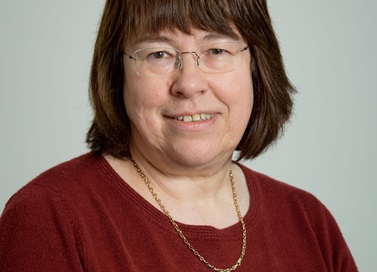A long way home
26 November, 2019
As usual I am writing this on a train, I’m heading North to my home in Yorkshire after a busy and stimulating week meeting many different members, hearing about their local services and experiences and talking about the work of the College. The train is diverted due to planned engineering works so expect a slightly longer blog than usual.
Titanic Belfast
A highlight of this month was a trip to Belfast. On my first day there we ran a “Brain Camp”. These are part of the RCPsych Gatsby Wellcome Neuroscience project. They are one-day events with teaching sessions on selected cutting-edge, clinically-relevant brain research topics. These sessions are run by local neuroscientists or psychiatrists who are chosen for their ability to explain neuroscience topics in a way that is easy to understand. Brain Camps also include workshops on teaching strategies and, of course, a chance to build a play-doh brain. There will be more Brain Camps in 2020; watch the website for news of these or email neuroscienceproject@rcpsych.ac.uk to join a waiting list.
My next two days in Belfast were spent attending the Joint Conference of the College of Psychiatrists of Ireland and the Royal College of Psychiatrists in Northern Ireland, “Psychiatry and Conflict”. This was held at the Titanic Centre, with the speakers talking from the foot of a replica of the Grand Staircase from the Titanic. The highlight for me was the President’s Lecture given by Lord Alderdice, a psychiatrist, psychotherapist and politician. Hearing him talk about how he uses his psychotherapeutic skills to influence the world of politics was fascinating. His lecture was filmed and will soon be available on our YouTube page, I strongly recommend that you watch it.
Bed reduction has gone too far
This was also the month when we released our work on service capacity in mental health services. In 2016 the Crisp Commission reviewed the provision of acute inpatient psychiatric care for adults in England. It recommended that the practice of sending acutely ill patients long distances for out of area placements (OAPs) and non-specialist treatment should be phased out by October 2017. The Government subsequently set an ambition to eliminate OAPs by 2021. NHS England and local services have worked very hard on this and the numbers initially dropped but have since flat-lined.
This year we commissioned an independent report to look at service capacity. What it found won’t surprise you. Mental health bed numbers have fallen by 73% since 1987, bed occupancy is rising and the reductions in bed numbers are due to reductions in admissions, not by reductions in average length of stay. HoNOS scores show that admission thresholds have risen and discharge thresholds have fallen. The latest monthly figures show 710 patients who are on OAPs. That’s 710 patients away from their friends, families and the psychiatric teams that know them. They are in beds but in the wrong place.
We really need to sort this out. In our response to the report we suggested that extra beds, along with proper staffing and resourcing are required immediately in the areas that are struggling the most. Over the next two years we need to maximise the therapeutic value of wards and undertake a local service capacity assessment. Over the next 5 years the NHS Long Term Plan for England will kick in and we’ll see the strengthening of community teams that will mean more people will be supported to stay well at home.
There was intense media interest when we released the report. It was picked up by TV and radio programmes and national and local newspapers. I had a plumbing problem that day and needed to be at home, so I was actually filmed by the BBC in my own dining room. At one point it looked as if the cats were going to appear in the interview but sadly they got stage fright and ran off at the vital moment.
We will continue to campaign to ending the practice of sending patients out of area for care they should be able to receive locally, please do this in your own area. Hearing the stories of those who have been in hospital far from their homes is heartbreaking, we must make sure that this cruel practice stops.
Election fever
Excitement is building over the choice of my successor. The voting for the next College President opens on 11th December and closes on 8th January with the winner being announced immediately after. Please do vote, whoever wins the election will set the direction of our profession for the next three years so be sure it’s someone you are happy with.
There is another election taking place as well. We have released our manifesto for this and are working to ensure that we keep mental health high on everyone’s agenda, particularly the next Government’s.
First prize
One of my main aims as President has been to improve diversity and equality within the College, both for staff and members. Paul Rees, our CEO, has been invaluable in ensuring that this happens and together we have made changes to achieve this, including the first ever celebrations of Pride and Black History month at the College. I was really pleased when we fended off competition from across the continent to be crowned Charity of the Year at the European Diversity Awards, recognised for "outstanding work in the field of equality, diversity and inclusion". This isn’t an area where we can ever be complacent, there is lots more to do but it was lovely for our efforts to be recognised.
Follow me on Twitter
The next month will fly past as we head to the Christmas holiday. My diary is full and I’m looking forward to meeting many of you on my travels. As always you can use Twitter to follow my struggles with the UK transport system and the great times I have when I do actually arrive somewhere.


